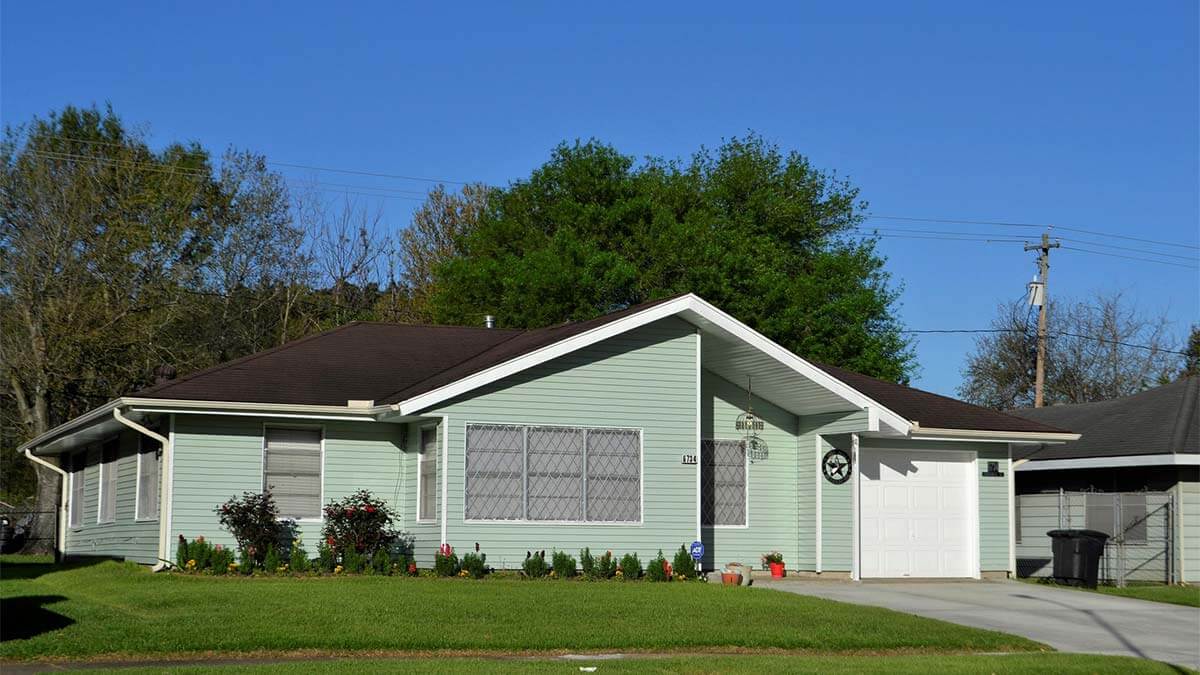Selling a house involves numerous considerations, and one of the most crucial aspects to understand is the tax implications. In Virginia, as in other states, there are specific taxes and financial responsibilities that homeowners need to be aware of to avoid any unexpected surprises during the sale process.
In this article, we will provide a comprehensive guide on the taxes involved when selling a house in Virginia. From property taxes to capital gains tax, we will cover all the essential information you need to know.
For more details on selling your home quickly, check out our guide on cash home buyers in Virginia.
Compare Cash Offers from Top Home Buyers. Delivered by Your Local iBuyer Certified Specialist.
One Expert, Multiple Offers, No Obligation.
House Sale Taxes in Virginia
Taxes When Selling a House
When selling a house in Virginia, there are several types of taxes that you need to be aware of. Understanding these taxes can help you prepare for the financial implications of the sale and avoid any surprises. Here are the key taxes involved in selling a house in Virginia:
Property Taxes
Property taxes are levied by local governments and are based on the assessed value of the property. These taxes fund various public services, such as schools, roads, and emergency services. When selling a house, it’s important to ensure that property taxes are paid up to date, as they are prorated at closing between the seller and the buyer.
Capital Gains Tax
Capital gains tax is a federal tax on the profit made from selling a property. If you sell your home for more than you paid for it, you may be subject to capital gains tax on the profit. However, there are exclusions available that can reduce or eliminate this tax if the property was your primary residence and you meet certain conditions.
Grantor’s Tax
In Virginia, a grantor’s tax is imposed on the seller when a property is transferred. This tax is calculated based on the sale price of the property and must be paid at the time of the sale. The standard rate for the grantor’s tax is $1 for every $1,000 of the sale price, but there may be additional charges in certain areas, such as Northern Virginia.
Recording Fees and Transfer Taxes
Recording fees are charged for the official recording of the property deed with the local government. Transfer taxes, also known as recordation taxes, are levied on the transfer of property and are based on the sale price. These fees and taxes must be paid at closing and are typically the responsibility of the seller.
Property Taxes
When selling a house in Virginia, one of the primary tax considerations is property taxes. Here’s what you need to know about property taxes and how they impact the sale of your home:
What Are Property Taxes?
Property taxes are annual taxes imposed by local governments, including counties, cities, and towns, based on the assessed value of your property. These taxes are used to fund public services such as education, road maintenance, and emergency services. The amount you owe in property taxes is determined by multiplying the assessed value of your home by the local tax rate.
Responsibility for Property Taxes During Sale
During the sale of a property, property taxes are typically prorated between the seller and the buyer. This means that each party is responsible for the property taxes for the portion of the year they own the home. Here’s how it works:
- Proration at Closing: At the closing of the sale, property taxes are calculated up to the date of the sale. The seller pays the taxes for the time they owned the property, and the buyer pays for the remainder of the year.
- Settlement Statement: The proration of property taxes is documented in the settlement statement, which details the financial transactions of the sale. It ensures that both the buyer and seller pay their fair share of the property taxes.
Importance of Paying Up-to-Date Property Taxes
Before selling your house, it’s crucial to ensure that your property taxes are current. Unpaid property taxes can complicate the sale and may need to be settled before the transaction can be completed. To avoid any issues:
- Check with Local Tax Authority: Contact your local tax authority to verify the amount of property taxes owed and ensure there are no outstanding payments.
- Settle Any Outstanding Taxes: If there are unpaid property taxes, arrange to pay them before the sale or ensure they are accounted for in the closing process.
Capital Gains Tax
When selling a house in Virginia, it’s important to understand how capital gains tax may apply to your sale. Here’s a detailed look at what capital gains tax is, how it’s calculated, and potential exemptions and exclusions that can help you save money.
Definition of Capital Gains Tax
Capital gains tax is a federal tax on the profit made from selling a property. If you sell your house for more than you paid for it, the profit, known as the capital gain, is subject to taxation. The amount of tax you owe depends on several factors, including how long you owned the property and your tax filing status.
Calculating Capital Gains
To calculate your capital gains, you need to determine the difference between your selling price and your purchase price. Here’s a simple formula:
Capital Gain = Selling Price – Purchase Price
For example, if you bought your home for $200,000 and sold it for $300,000, your capital gain would be $100,000.
However, there are additional factors to consider:
- Selling Expenses: You can deduct certain selling expenses from your capital gains, such as real estate agent commissions, advertising costs, and legal fees.
- Home Improvements: You can also add the cost of any significant home improvements you made to your property’s purchase price, reducing your overall capital gain.
Exemptions and Exclusions
The IRS provides significant exclusions that can help homeowners reduce or eliminate their capital gains tax liability if they meet certain conditions:
- Primary Residence Exclusion: If the property was your primary residence for at least two of the last five years before the sale, you may qualify for an exclusion of up to $250,000 for single filers or $500,000 for married couples filing jointly.
- Ownership and Use Tests: To qualify for the primary residence exclusion, you must have owned the home and used it as your primary residence for at least two years within the five-year period before the sale.
Grantor’s Tax
When selling a house in Virginia, one specific tax you need to be aware of is the grantor’s tax. Here’s a detailed explanation of what the grantor’s tax is, how it is calculated, and the regional variations that may apply.
What is Grantor’s Tax?
The grantor’s tax, also known as the grantor’s recording tax, is a tax imposed on the seller (grantor) when a property is transferred to a new owner. This tax is collected at the time of the sale and is based on the sale price of the property. The purpose of the grantor’s tax is to help fund local government services.
Tax Rate and Payment
The standard rate for the grantor’s tax in Virginia is $1 for every $1,000 of the sale price. Here’s how it is calculated:
Grantor's Tax = Sale Price/1,000 For example, if you sell your house for $300,000, the grantor’s tax would be:
Grantor's Tax = 300,000/1,000 = 300 So, you would owe $300 in grantor’s tax.
The grantor’s tax is typically paid at the closing of the sale, and the amount is documented in the settlement statement. It is the responsibility of the seller to ensure this tax is paid.
Regional Variations
While the standard grantor’s tax rate applies throughout Virginia, there are some regional variations that sellers should be aware of:
- Northern Virginia: In certain areas, such as Northern Virginia, there may be additional charges on top of the standard grantor’s tax. These charges can vary, so it’s important to check with your local tax authority to understand the specific tax rates that apply in your area.
- Local Government Fees: Some local governments may impose additional fees or taxes related to the transfer of property. These fees are usually nominal but should be considered when calculating the total cost of selling your home.
Recording Fees and Transfer Taxes
In addition to the grantor’s tax, there are other costs associated with the sale of a house in Virginia, such as recording fees and transfer taxes. These fees are part of the closing costs and are typically handled during the final stages of the sale.
Recording Fees
Recording fees are charges imposed by the local government for officially recording the property deed and other related documents. Here’s what you need to know about recording fees:
- Purpose: The primary purpose of recording fees is to document the change of ownership in public records, ensuring that the transfer is legally recognized.
- Cost: The cost of recording fees varies by county, but they are usually based on the number of pages in the deed and other documents. On average, you can expect to pay a fee for each page recorded, which might range from $10 to $25 per page.
- Responsibility: Typically, the seller pays the recording fees, but this can sometimes be negotiated between the buyer and seller.
Transfer Taxes
Transfer taxes, also known as recordation taxes, are levied on the transfer of property from one owner to another. Here’s how transfer taxes work in Virginia:
- Tax Rate: The transfer tax rate in Virginia is usually calculated as a percentage of the sale price of the property. The standard rate is $0.25 per $100 of the sale price. For example, if you sell your house for $300,000, the transfer tax would be:
Transfer Tax = 300,000/100 x 0.25 = 750 So, you would owe $750 in transfer taxes.
- Responsibility: Like recording fees, transfer taxes are generally the responsibility of the seller, although this can be negotiated in the sale agreement.
- Local Variations: Some localities in Virginia may have additional transfer taxes or fees. It’s important to check with your local government to understand any additional costs that may apply.
Deductions and Reductions
When selling a house in Virginia, there are several deductions and reductions that can help minimize your tax liability. Understanding these potential deductions can save you a significant amount of money and make the selling process more financially manageable.
Possible Deductions
Certain costs associated with selling your home can be deducted from your taxable capital gains, reducing the overall amount you owe in taxes. Here are some of the common deductions you might be eligible for:
- Home Improvements: Major home improvements that add value to your property can be deducted from your capital gains. This includes renovations such as adding a new room, remodeling the kitchen, or installing a new roof. Keep detailed records of these expenses to support your deductions.
- Selling Expenses: Costs directly related to the sale of your home can also be deducted. These expenses may include:
- Real estate agent commissions
- Advertising and marketing costs
- Legal fees
- Staging costs
- Inspection fees
- Closing Costs: Certain closing costs paid at the time of sale can be deducted, such as recording fees and transfer taxes.
Record Keeping
Maintaining accurate and comprehensive records of your home-related expenses is crucial for maximizing your deductions. Here’s how to ensure you have the necessary documentation:
- Save Receipts: Keep all receipts and invoices for home improvements, repairs, and selling expenses. These documents will support your deductions if needed.
- Organize Records: Create a systematic way to organize your records, such as a digital file or a dedicated folder. This will make it easier to find and reference the documents when preparing your taxes.
- Document Dates and Details: Note the dates and specific details of each expense, including the purpose and cost. This information will be helpful in accurately calculating your deductions.
Reducing Taxable Gains
In addition to deductions, you can also take steps to reduce your taxable gains when selling your home. Here are a few strategies:
- Primary Residence Exclusion: If your home qualifies as your primary residence, you may be eligible for a significant exclusion on your capital gains tax. As mentioned earlier, the IRS allows up to $250,000 for single filers and $500,000 for married couples filing jointly, provided you meet the ownership and use tests.
- 1031 Exchange: If you’re selling an investment property, you can defer capital gains taxes by using a 1031 exchange. This allows you to reinvest the proceeds from the sale into a similar property without immediately paying taxes on the gains.
Special Considerations
When selling a house in Virginia, there are special considerations to keep in mind, particularly for inherited property, investment property, and 1031 exchanges. Understanding these nuances can help you navigate the tax implications and make informed decisions.
Inherited Property
Selling an inherited property involves specific tax rules and considerations. Here’s what you need to know:
- Stepped-Up Basis: When you inherit a property, the tax basis is “stepped up” to its fair market value at the time of the previous owner’s death. This means that if you sell the property soon after inheriting it, your capital gains tax liability may be minimal or nonexistent.
- Estate Taxes: Depending on the value of the estate, estate taxes may apply. However, the federal estate tax exemption is quite high, so most estates do not owe federal estate taxes. Virginia does not have a state estate tax.
- Selling Process: The process of selling an inherited home is similar to selling any other property but may involve additional steps, such as probate. Working with a real estate attorney can help ensure that you comply with all legal requirements and efficiently handle the sale.
Investment Property
Selling investment property has different tax implications compared to selling your primary residence. Here’s what you should consider:
- Capital Gains Tax: Unlike a primary residence, you do not qualify for the primary residence exclusion on capital gains when selling investment property. This means that the entire profit from the sale is subject to capital gains tax.
- Depreciation Recapture: If you have claimed depreciation on the property during the time you owned it, you will need to pay depreciation recapture tax. This tax is calculated at a flat rate of 25% on the total depreciation claimed.
- Deductible Expenses: You can deduct selling expenses and certain improvements from your capital gains, reducing your overall tax liability.
1031 Exchanges
A 1031 exchange, also known as a like-kind exchange, allows you to defer paying capital gains taxes on an investment property sale by reinvesting the proceeds into a similar property. Here’s how it works:
- Eligibility: To qualify for a 1031 exchange, both the property sold and the property purchased must be held for investment or business purposes. Personal residences do not qualify.
- Timeline: You must identify the replacement property within 45 days of selling your original property and complete the purchase within 180 days.
- Qualified Intermediary: A qualified intermediary must handle the exchange process to ensure compliance with IRS rules.
Using a 1031 exchange can be a valuable strategy for investors looking to defer capital gains taxes and reinvest in new properties.
How iBuyer.com Can Help
Selling a house can be a complex and time-consuming process, especially when dealing with tax implications and legal requirements. iBuyer.com offers a streamlined solution for homeowners looking to sell quickly and efficiently. Here’s how iBuyer.com can assist you in selling your house in Virginia.
Instant Cash Offers
iBuyer.com provides instant cash offers for your home, allowing you to sell quickly without the hassle of traditional home selling methods. This service is especially beneficial for homeowners in urgent situations, such as avoiding foreclosure or needing to relocate swiftly.
Fast and Flexible Closing Dates
One of the significant advantages of using iBuyer.com is the ability to choose your closing date. This flexibility allows you to align the sale with your timeline, reducing stress and uncertainty. Whether you need to close in a few days or a few months, iBuyer.com accommodates your schedule.
Handling of All Paperwork and Legalities
Navigating the legal and paperwork requirements of selling a house can be daunting. iBuyer.com handles all the necessary documentation, ensuring compliance with Virginia’s real estate laws and tax regulations. This comprehensive service simplifies the selling process, giving you peace of mind.
Selling Your Home in Virginia
Understanding the tax implications and various considerations when selling a house in Virginia can be challenging. However, with the right information and support, you can navigate the process smoothly and efficiently.:
- Taxes: Be aware of property taxes, capital gains tax, grantor’s tax, and other fees.
- Deductions: Take advantage of possible deductions and keep detailed records.
- Special Considerations: Understand the nuances of selling inherited property, investment property, and utilizing 1031 exchanges.
Visit iBuyer.com to get a fast, fair cash offer for your home in Virginia today. With us, you can sell your house with ease, knowing that you have a trusted partner handling all the details.
Instant Valuation, Confidential Deals with a Certified iBuyer.com Specialist.
Sell Smart, Sell Fast, Get Sold. No Obligations.
Reilly Dzurick is a seasoned real estate agent at Get Land Florida, bringing over six years of industry experience to the vibrant Vero Beach market. She is known for her deep understanding of local real estate trends and her dedication to helping clients find their dream properties. Reilly’s journey in real estate is complemented by her academic background in Public Relations, Advertising, and Applied Communication from the University of North Florida.




